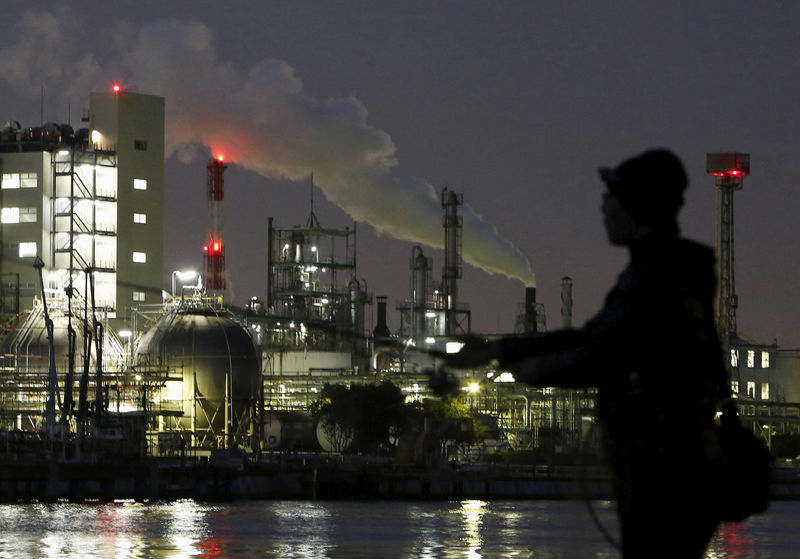TOKYO, (Reuters) - Japanese manufacturing activity contracted in February at the fastest pace in two-and-a-half years as factories cut back output amid shrinking domestic and export orders, a revised survey showed on Friday.
The survey highlighted the extent of the damage that the U.S.-China trade war has already inflicted on Japan and other export-oriented countries in Asia.
The Final Markit/Nikkei Japan Manufacturing Purchasing Managers Index (PMI) was a seasonally adjusted 48.9, slightly above a flash reading of 48.5 but below January's final 50.3.
The index fell below the 50 threshold that separates contraction from expansion for the first time since August 2016 and showed the fastest contraction since June 2016.
"Sharper reductions in output and demand drove the Japanese manufacturing economy into contraction during the midway point of Q1, compounding reductions already recorded in January," said Joe Hayes, economist at IHS Markit, which compiles the survey.
"Global trade frictions and weak domestic manufacturing demand pose considerable risks to Japan's goods producers."
The output component of the final PMI index was 47.4, above a preliminary 47.0 but still down from a final 54.4 in January to show the fastest contraction since May 2016.
Total new orders - domestic and foreign - fell at the fastest pace since June 2016, the final survey showed, confirming economists' concerns that the trade war has hurt Japan's prospects for growth.
U.S. President Donald Trump said on Sunday he would delay an increase in U.S. tariffs on Chinese goods due to "productive" trade talks and that he and Chinese President Xi Jinping would meet to seal a deal if progress continued.
If the two sides can narrow their differences and put an end to their trade dispute, this would ease pressure on Japan, which exports a lot of electronic parts and heavy machinery to manufacturers in China.
